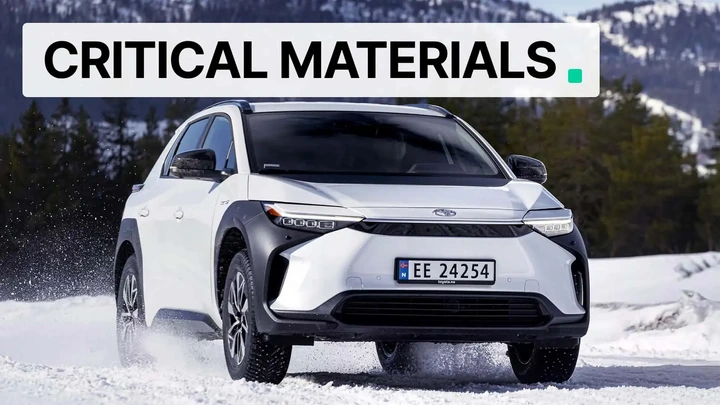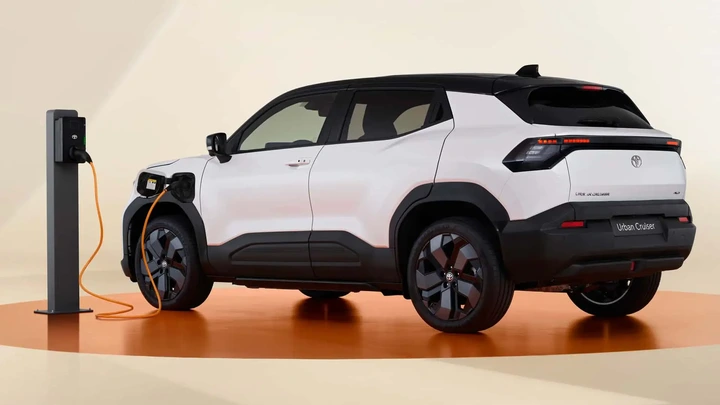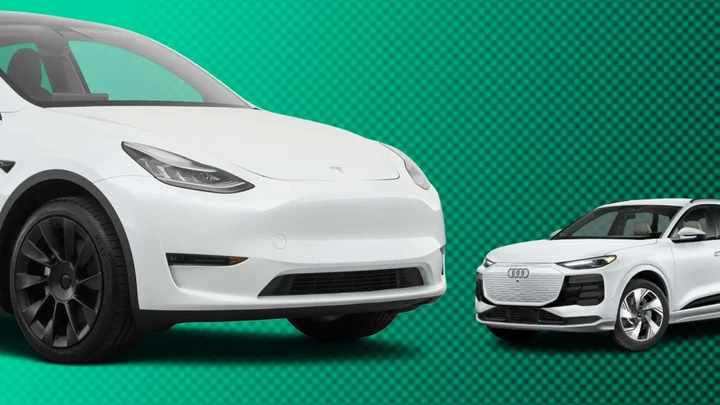Toyota Executive: 'We've Gained Insights From the bZ4X Situation'
Toyota's "multi-pathway" strategy is set to undergo evaluation soon. Additionally, Hyundai seeks to engage with Trump, while Tesla outperforms Audi.

View pictures in App save up to 80% data.
Generally speaking, I wouldn't dismiss Toyota in the competition for electric vehicles or any emerging transportation technology. However, my optimism has its boundaries. Despite Toyota enjoying a remarkable year in the U.S. in 2024, largely due to its hybrid models, signs of trouble are emerging in various global markets. The effectiveness of its "multi-pathway" strategy—developing a variety of powertrains—is poised for a significant test in several crucial regions. One particular market provides insight into the future direction of Toyota's electric vehicles.
That kicks off this Monday edition of Critical Materials, our morning roundup of auto industry and technology news. We're in a bit of a post-CES 2025 news drought today, which is fine by me, but expect more coverage from InsideEVs about the rest of last week's trade show soon.
Additionally on the agenda today: Tesla surpasses Audi in global sales for the first time, while Hyundai reaches out to President-elect Donald Trump, who is set to return to the White House in just one week. Let's explore further.
30%: Enhancing the bZ4X Experience

View pictures in App save up to 80% data.
Image credit: Toyota
2025 Toyota Urban Cruiser
Toyota stands out as one of the last automakers that genuinely functions on a global scale, capable of delivering various vehicles tailored for different regions. In Japan, you’ll find efficient city cars, while the United States enjoys robust trucks like the Tacoma and Tundra. Meanwhile, the Middle East and Africa are served with classic diesel Land Cruisers—it's a diverse lineup. Toyota offers a range of vehicles, including traditional combustion engines, hybrids, and hydrogen-powered options, although the hydrogen initiative hasn't been as successful as hoped.
One area where Toyota knows it's deficient is purely electric vehicles. Company executives seem to be acknowledging this white space more and more, as they did to InsideEVs at CES just last week. Toyota may have the R&D, capital and infrastructure to make many different kinds of cars without committing to one single solution, but it doesn't want to lose sales. And it is in China right now.
But there are other places where the EV revolution is also in force. One of them is Norway, where the new car market is basically 90% electric. Granted, that's only a few hundred thousand cars—Americans bought probably 15 million last year, for context—but no car company wants to lose anywhere. So this interview of Toyota Norway CEO Piotr Pawlak with the country's Motor publication is very telling. Some excerpts, with help from Google Translate:
This involves multiple components. The Norwegian department will not only provide education to other markets but will also strive to promote the sale of electric cars in Norway to the fullest extent.
As the electric vehicle market in Norway is projected to surpass 90 percent by 2025, it plays a crucial role in the overall European electric car landscape. Additionally, the expansion of electric cars in Norway is likely to be more robust than that of the bZ4X model.
Norway has fully committed to electric vehicles, leaving behind any interest in hybrid sales within the country. These hybrids can be marketed in other regions where they are profitable. Consequently, Pawlak is keen on focusing exclusively on electric car sales. By 2025, it's expected that at least 80 percent of the Toyotas sold in Norway will be electric models.
[...] We have learned from the bZ4X crisis, he says, guaranteeing that the upcoming models will have battery preheating, a good route planner and generally electric car technology that is expected in today's market.
The latest car models will be designed for optimal charging in Norway and will come equipped with four-wheel drive capabilities.
The "bZ4X crisis" refers to the same criticisms U.S. and European EV shoppers have of Toyota's primary electric offering: its range, price, charging and software specs are already uncompetitive and getting outclassed by new entries all of the time. In the case of chilly Norway, a good EV needs proper four- or all-wheel-drive, cold weather resilience, battery preconditioning and route-planning. The bZ4X doesn't measure up on most of that.
But I bring this up Pawlak's comments do matter to the rest of the world: if what the CEO says is true, then Toyota's clearly working on this stuff. It has high hopes for the new Urban Crusier compact electric (pictured above) and has several new EV models planned globally for 2026 and beyond. Some of those EVs will assuredly be Europe-specific and it will likely continue leaning on local partners in China, but more and more, the message is clear: Even if Toyota doesn't envision an all-electric future as other carmakers do, it can't let EVs be some afterthought anymore. And in the U.S., people certainly want good electric options from this trusted brand.
60%: Tesla Surpasses Audi Worldwide For The First Time

View pictures in App save up to 80% data.
Image credit: InsideEVs
Speaking of things that aren't working, the Volkswagen Group is keenly aware that Audi is pretty far from the power-hitter that it was in the 2000s and 2010s. Global Audi sales were down a whole 14% in 2024 and the declines hit the entire lineup. It's an older lineup, too, and perhaps speaking subjectively,